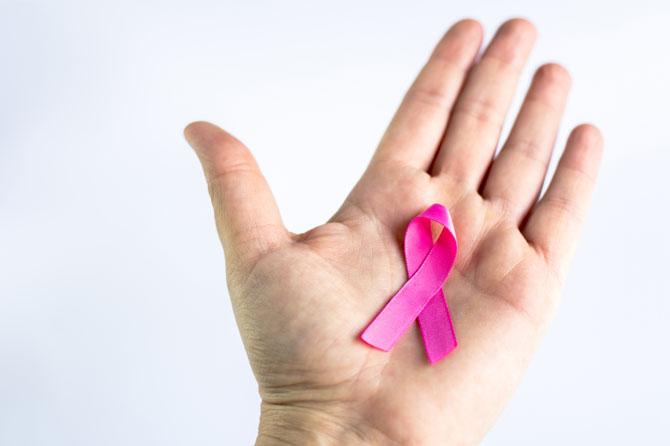A new oral drug whose efficacy in combating breast cancer has been demonstrated alone and in combination with endocrine therapy, also has potential to combat other types of cancer, new research has found

Breast cancer
New York: A new oral drug whose efficacy in combating breast cancer has been demonstrated alone and in combination with endocrine therapy, also has potential to combat other types of cancer, new research has found.
ADVERTISEMENT
The drug palbociclib targets the rapid division of tumour cells by inhibiting the activity of the enzymes CDK4 and CDK6, which propel cell division and increase in number in most cancers, the study said.

Representational picture
"All living cells undergo cell division and palbociclib's unique capacity to halt the cell division process (also known as the 'cell cycle') therefore has potentially broad applicability," said the study's lead author Amy Clark, assistant professor at Perelman School of Medicine, University of Pennsylvania in the US.
"Pairing palbociclib with other anti-cancer therapies such as endocrine therapy, chemotherapy, and targeted therapy can create a powerful combinatorial effect with real promise for addressing a variety of cancers," Clark noted.
Assessing 130 relevant publications in the literature, as well as interpreting their own continuing studies, the research team found that in addition to its safety and effectiveness in fighting certain types of breast cancer, early trials of palbociclib have shown promise of effectiveness in cases of lymphoma, sarcoma, and teratoma, tumours that while rare, often afflict younger patients.
In both breast and other cancer trials, palbociclib has been shown to be safe with once-daily dosing, and its main adverse effect is reversible neutropenia, an abnormally low count of neutrophils, a type of white blood cell that helps fight infections.
"This drug has minor effects on normal cells other than neutrophils (white blood cells)," study senior author, Peter O'Dwyer, professor at University of Pennsylvania, noted.
"In tumours, it can cause shrinkage, or more commonly, arrest of growth. As we discover new functions for the CDK4/6 target of this medicine, we are likely to use it in combinations to make other anti-cancer agents work better," O'Dwyer said.
The study was published in the journal JAMA Oncology.
 Subscribe today by clicking the link and stay updated with the latest news!" Click here!
Subscribe today by clicking the link and stay updated with the latest news!" Click here!






